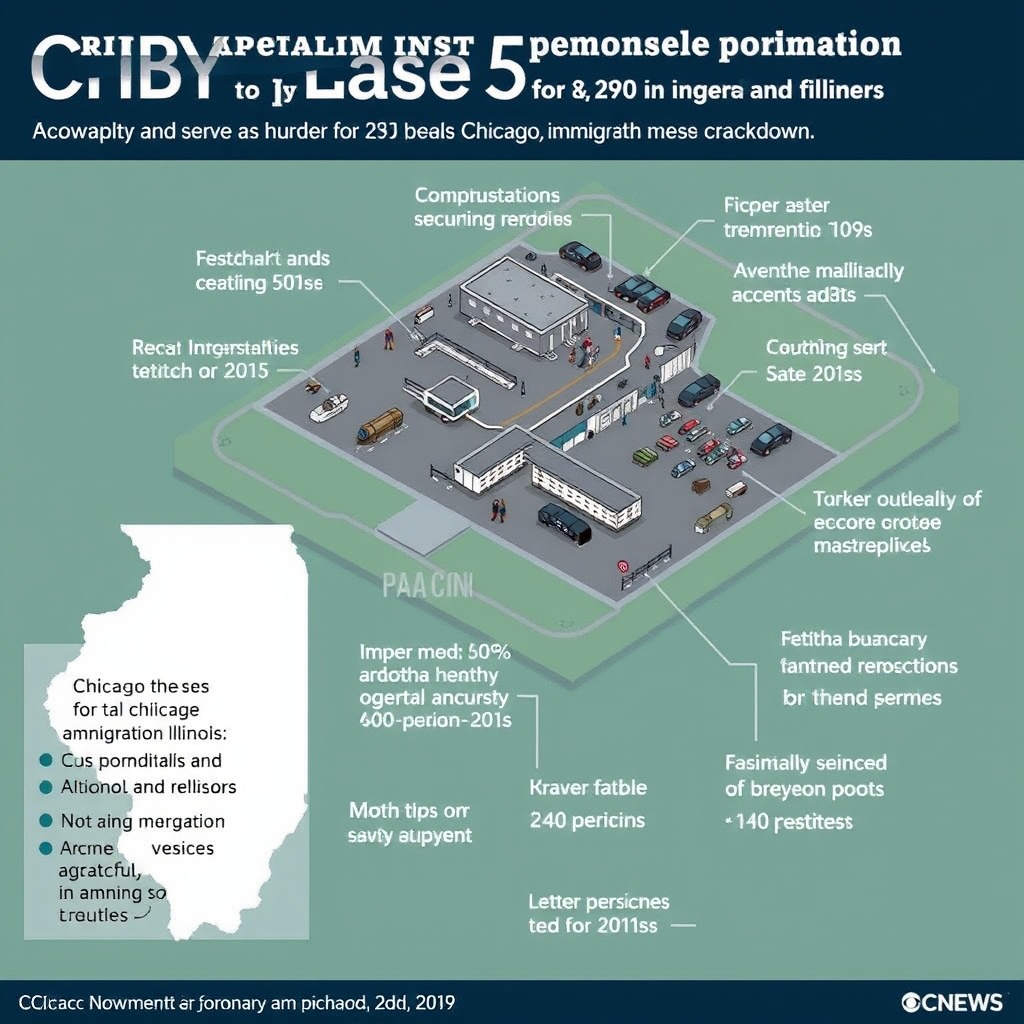Introduction
The United States government has been actively working to strengthen its immigration enforcement policies, and a recent development suggests that a Navy base in Illinois will play a crucial role in this effort. According to a memo, the Department of Homeland Security (DHS) has requested the Pentagon to accommodate up to 250 federal agents and 140 vehicles at the Navy base, indicating a significant buildup of resources in preparation for an immigration crackdown in the Chicago area. This move has sparked concerns among immigrant communities and advocacy groups, who fear that the increased presence of federal agents will lead to more raids, arrests, and deportations. In this article, we will delve into the details of this development, explore the potential implications, and examine the context of the ongoing immigration debate in the United States.
Background on Immigration Enforcement
The Trump administration has made immigration enforcement a top priority, with a focus on cracking down on undocumented immigrants and strengthening border security. The administration has implemented a series of policies aimed at reducing the number of immigrants entering the country, including the construction of a border wall, increased deportations, and stricter asylum laws. The use of federal agents to enforce immigration laws is not new, but the scale of the operation planned for the Chicago area appears to be significant. The memo indicates that the Navy base will serve as a hub for the federal agents, providing them with a strategic location from which to launch operations and coordinate efforts.
According to data from U.S. Immigration and Customs Enforcement (ICE), the agency conducted over 140,000 arrests in fiscal year 2020, a significant increase from the previous year. The majority of these arrests were made in the context of targeted enforcement operations, which often involve collaboration with local law enforcement agencies. The use of Navy bases as hubs for federal agents is not unprecedented, but it highlights the growing militarization of immigration enforcement and the willingness of the government to deploy significant resources to achieve its goals.
Impact on Immigrant Communities
The planned buildup of federal agents in the Chicago area has sparked concern among immigrant communities, who fear that the increased presence of law enforcement will lead to more raids, arrests, and deportations. Many immigrants in the area are already living in fear of deportation, and the prospect of a large-scale enforcement operation has created a sense of unease and uncertainty. Advocacy groups have criticized the plan, arguing that it will lead to the separation of families, the disruption of communities, and the erosion of trust between law enforcement and the public.
A study by the Urban Institute found that immigrant communities are often reluctant to report crimes or cooperate with law enforcement due to fear of deportation. This phenomenon, known as the "chilling effect," can have serious consequences for public safety and community well-being. The deployment of federal agents to the Chicago area may exacerbate this problem, making it more difficult for immigrant communities to access essential services, report crimes, and participate in the democratic process.
Role of the Navy Base
The Navy base in Illinois is expected to play a critical role in the planned immigration crackdown, serving as a hub for federal agents and providing them with logistical support. The base will likely be used as a staging area for operations, allowing agents to coordinate efforts, store equipment, and process detainees. The use of a military base for this purpose raises questions about the militarization of immigration enforcement and the blurring of lines between military and law enforcement operations.
The Navy base is also likely to be used as a detention facility, holding immigrants who are arrested during the enforcement operation. The conditions at the base will be subject to scrutiny, with concerns about the treatment of detainees, access to medical care, and the provision of legal services. The use of military bases as detention facilities has been criticized in the past, with concerns about the lack of transparency, accountability, and oversight.
Conclusion
The plan to deploy up to 250 federal agents to a Navy base in Illinois as part of an immigration crackdown in the Chicago area has significant implications for immigrant communities, law enforcement, and the broader debate on immigration policy. The use of military bases as hubs for federal agents highlights the growing militarization of immigration enforcement and the willingness of the government to deploy significant resources to achieve its goals. As the operation unfolds, it will be essential to monitor the impact on immigrant communities, the effectiveness of the enforcement efforts, and the potential consequences for public safety and community well-being.
The immigration debate in the United States is complex and multifaceted, with different perspectives on the role of enforcement, the treatment of undocumented immigrants, and the need for comprehensive reform. As the government continues to implement its immigration policies, it is crucial to consider the human impact, the potential consequences for communities, and the need for a balanced and humane approach to immigration enforcement. Ultimately, the use of a Navy base as a hub for federal agents in the Chicago area serves as a reminder of the ongoing struggle to balance national security, public safety, and human rights in the context of immigration policy.


Leave a comment